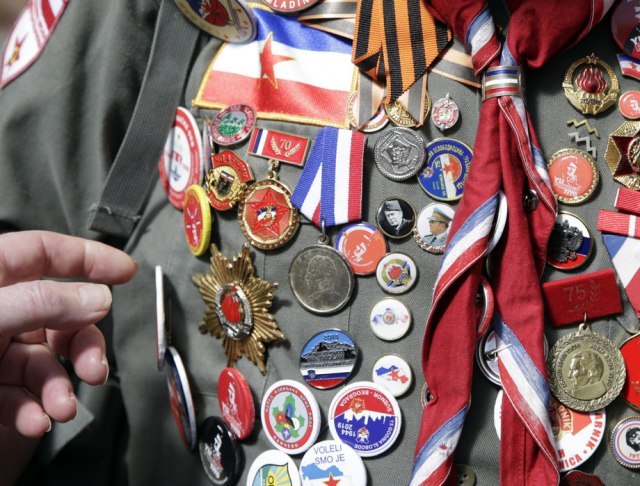Well-known magazine: "Serbs are a nation of heroes, they are presented as warmongers"
The latest issue of the Swiss magazine "Die Weltwoche" presented Serbs as a heroic people who sacrificed themselves for Europe.
Tuesday, 11.01.2022.
11:45

Well-known magazine: "Serbs are a nation of heroes, they are presented as warmongers"
The magazine also states that almost no other European nation in the past three decades has been so brutally criticized in Western Europe as Serbia.In the text entitled "Serbs are a nation of heroes", this weekly reminds that historical nations are full of struggles and losses, and Europe has a lot to thank for the readiness of Serbs to make sacrifices.
It is pointed out that for most commentators, the Serbian people are the main cause of the recent wars in the Balkans, reminding that the Austrian Nobel laureate Peter Handke, when he sought justice for Serbs, was exposed to a real "tsunami" of attacks, especially in Germany and France.
The paper states that many Serbs rightly feel misunderstood and left in the lurch, and in this regard it states that Serbs were already portrayed as barbaric and nasty people in the Austro-Hungarian monarchy and the German Reich before the First World War, as a nation of "assassins of kings".
However, the paper reminds, many Swiss saw it with different eyes, so there are examples - nurse Louise Probst, who cared for the wounded in Belgrade for three months, and described Serbs as a people who fought for freedom, helpful and very kind, and a professor of criminology in Lausanne, Archibald Rice, who at the beginning of the First World War reported on the indescribable war crimes of Austro-Hungarian troops against Serbs.
The paper points out that Serbs have been living in a war environment for centuries, at a crossroads between the west and the east, and even refers to the Battle of Kosovo in 1389, and recalls the regret of historian Heinrich Gelzer for the loss of Serbs at the time, the most noble of all Slavs".
It is also reminded that no nation fought against the Ottoman rule for longer than the Serbs, although the Serbian state disappeared from geographical maps for 350 years, but thanks to the unwavering work of the Serbian Orthodox Church, strong commitment to tradition and memories of earlier heroic eras, Serbs never reconciled with occupation.
Supporting the Austrians, Russians and others in the fight against the Turks, the Serbs freed themselves from their own strength, with multiple victories over the Turks, the paper reminds.
Also, referring to the Second World War, when Germany occupied Serbia in 1941, it is pointed out that the Serbs "Užice Republic" achieved the first liberation of a territory occupied by the Nazis in Europe, and the Serbian people with 1.7 million victims, i.e. 10 percent of the population, suffered the greatest casualties in the Second World War in Yugoslavia.
Writing about the wars during the end of the 20th century in the former Yugoslavia, Weltwoche states that all sides committed crimes, and that ethnic violence is a consequence of many years of disputes, persecution and crimes in those areas. The paper criticizes the fact that for the West, only Serbs were aggressors and instigators from the beginning, and emphasizes that the NATO bombing of Serbian cities in 1999 is still disputed because there was no UN mandate.
The text, however, points out that Serbia has long been a parliamentary democracy, which does not need lessons from outside, and Serbs living in the country and abroad are considered very valuable people, respected, especially in science.
"They are no less modern and open than others, and myths about the heroic past are as important in their lives as myths from the past are for the Swiss. Serbs have long since become heroes of history, heroes of everyday life," the text reads.
Weltwoche paid special attention to Nikola Tesla, for whom it states that it is not surprising that today the largest number of electric cars bears his name. The paper reminds that Tesla was born in Croatia, then part of Austria-Hungary, as the son of an Orthodox priest and that he was a member of the Serbian minority, who attached great importance to heroic poems, songs and dances, as well as celebrations.
The magazine points out that Tesla made a great contribution to science with his patents. "Perhaps, prior to a tennis star Novak Djokovic, Tesla is the greatest son of modern Serbia", Weltwoche underlined.
















































Komentari 4
Pogledaj komentare